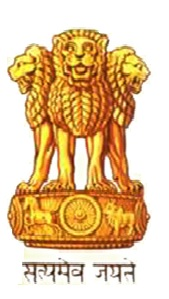
Statement by India on the Agenda item 3 – Report by DG WHO-at the 140th Executive Board Meeting of the WHO delivered by Shri. Sanjeeva Kumar, Additional Secretary, Ministry of Health & Family Welfare on 23 January 2017.
Mr. Chair,
Director General, and
Excellencies
We thank the Director General for what is her last comprehensive report to the Executive Board. We commend the DG for her leadership, dedication and professionalism in dealing with some of the complex global health challenges that emerged during her tenure. In particular, we appreciate the hard work put in by the DG and her team in dealing with global health emergencies and in successfully initiating the process of systemic rejuvenation of the organisation for better emergency preparedness.
- As the DG prepares to pass the baton and the Organization gets ready for a new leadership, India believes that the top most priority should be to retain the primacy of WHO as the international leader in global public health policy making. Member States should do their part to enable and equip WHO with the necessary capacities to fulfill its mandate.
- We support the emphasis on UHC. We firmly believe that building strong people-centred health systems should be the overarching guiding principle driving the WHO’s agenda, so that this apex organisation can respond to the diverse health needs of the concerned populations in an appropriate manner.
- We have noted DG’s appeal to increase assessed contributions to WHO. We, however, believe that there is a need for better alignment between programme budget with the agreed SDGs. For the SDGs to have any meaningful impact, the needs and priorities of developing countries should be at the core of our implementation efforts. WHO Secretariat should better communicate to potential donors and come up with a medium term strategy in particular by highlighting the implementation targets highlighted in the SDGs. Focus should be in priority programme areas like health system strengthening and R&D in Communicable and Non-communicable diseases that disproportionately affect developing countries, which find prominent mention in the means of implementation targets under the SDG 3 on Health.
Madam Chair,
- The growing challenge of AMR needs our urgent and collective action. We welcome the High-level Political Declaration on AMR and call for a developmental approach to tackle AMR. Consistent with this, India supports that all the three interconnected issues of antibiotic stewardship, R& D in new antibiotics, and access to new and existing antibiotics are reflected in a balanced manner in any eventual global framework on AMR developed by WHO.
Madam Chair,
- Health R&D and access to medical innovation should receive our greater attention. India has recently joined a new multi-stakeholder innovative partnership called the Coalition for Epidemic Preparedness Innovation (CEPI) to accelerate the development of vaccines for emerging infectious diseases. CEPI is closely aligned with WHO Emergency R& D Blue Print and we hope it will emerge as a successful and innovative platform that will suitably address issues related to innovation, de-linkage, and access. India also had the privilege of chairing the intergovernmental negotiations on the follow up to CEWG at the last Assembly that resulted in a consensus resolution to strengthen the implementation of the CEWG Strategic Workplan.
- In the same spirit, India made a formal request to the EB Bureau along with the Member States of the South-East Asia Region, with the support of Brazil, Iran and South Africa, to include the report of the UN Secretary General High Level Panel for discussion as a specific Agenda Item. We regret that this request was turned down without any plausible reason. Given the constitutional mandate of WHO on health R& D and access and its central role in coordinating global efforts for the realization of health related SDGs, it is only appropriate that the findings and recommendations of the UNSG’s High Level Panel are discussed formally by Member States within WHO.
Mr. Chair,
- The EB140 has a long and substantial agenda including important discussions on implementation of IHR, review of PIP framework, evaluation of GSPOA, NCDs and AMR. Indian delegation will continue to play a constructive role in addressing these and other global health challenges and looks forward to a successful 140th EB session.
I thank you Madam Chair.
***













